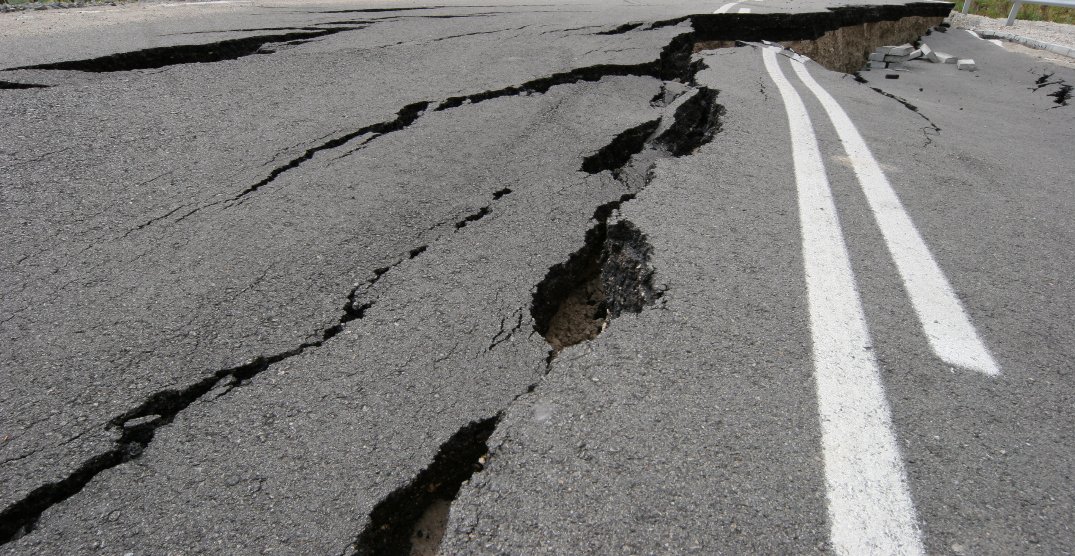After the catastrophe of a series of devastating earthquakes in Turkey, are we prepared for the Great Vancouver Earthquake?
For decades Vancouver residents have been warned that the “Big One” could strike at any moment, but are we prepared as residents, and perhaps a better question, are our governments prepared?
We have faced several climate-related emergencies in the region in recent years. If they are the example we are looking at, could we be headed for a desolation such as we have never known?
In recent years, questions have been raised about how our government was prepared for climate-related emergencies, particularly after events like the devastating summer 2021 heat dome that killed hundreds. As a result, suggestions surfaced that the BC government was unprepared. More questions were raised this winter after snowfalls completely crippled BC’s infrastructure, leading many to wonder what would happen if a major earthquake struck the region.
Tremors are not uncommon in BC, and indeed BC had a magnitude 3.9 quake on Saturday before the devastating earthquakes in Turkey.
A few days ago, the BC Department of Emergency Management issued a media release about “large-scale emergency drills” simulating an earthquake in the Lower Mainland. Unfortunately, while simulations are good in practice, they will never be able to reproduce the damage BC might have in store, like a damaged highway or a collapsed building.
The simulation also only accounted for a magnitude 6.8 quake, not as strong as the magnitude 7.8 quake that struck Turkey – or Turkiye as it is authentically spelled – causing thousands of deaths and catastrophic effects on the country’s infrastructure had. It’s also not as strong as the M9 quake that some experts have predicted could occur in this patch of forest, which has historical precedent, albeit a rare occurrence.
The BC government also has a response strategy that outlines 7.0 and 7.3 magnitude quake scenarios in different regions.
The largest earthquake to hit the region in recent memory was in 1946 with a magnitude of 7.3.
aerial photos out #Turkey post the massive #Earthquake Today
Simply heartbreaking pic.twitter.com/WQBbwnLBF8
— Abier (@abierkhatib) February 6, 2023
So are we prepared?
In a statement to Daily Hive, the City of Vancouver spoke about its commitment to earthquake preparedness. The statement suggests that Vancouver has made significant investments over the past decade to assess risks, improve infrastructure and develop contingency plans.
In 2019, Vancouver participated in a “Van Slam” exercise to test the city’s responsiveness. What the city learned from this exercise will be used as input for future work to prepare the region for a major earthquake. The city also indicated that it participates in the annual ShakeOut BC.
Many areas, such as schools and vital infrastructure, are undergoing seismic upgrades by the BC government. But that doesn’t mean there aren’t gaps. A report from the Metro Vancouver Regional District, for example, suggests that a major earthquake could cause leaks and ruptures in the water transmission system.
The BC government has admitted there may be gaps in the response.
“Following a catastrophic event, there is an immediate need for peak capacity to fill roles at all levels of the emergency management system,” said a 2022 Emergency Preparedness Report.
“The existing capacities within First Nations, local authorities and provincial emergency management organizations will not be sufficient to meet the anticipated response needs.”
Does that mean Judgment Day when a big earthquake occurs? Not necessarily.
We caught up with John Clague from SFU’s Department of Earth Sciences, who didn’t sound overly concerned about the so-called “Big One”.
While Clague believes we could be better prepared, he also believes we are much more likely to get a smaller earthquake and that we are dealing with a different earthquake setup here than in Turkey. While we could see deaths, injuries and economic disruption from an earthquake, he says the government has spent billions of dollars preparing.
Clague states that the trigger point of the large would be west of Vancouver in and around the Pacific Ocean, meaning Vancouver Island would be hit harder. There is also a risk of a tsunami.
Clague adds that several factors worked against Turkey. For one, Turkey is a historic city with many very old buildings. According to him, it is also at a major earthquake hotspot, probably in the top 10 worst in the world.
He pointed to the devastating 6.3 magnitude earthquake in Christchurch, New Zealand, in 2011 as a better comparison due to the similarity of Vancouver’s geography and building codes. This earthquake caused damage in the tens of billions and 185 deaths.
Clague says it’s “impossible to prepare for a worst-case scenario,” a reminder that sometimes there’s no answer to Mother Nature’s anger.
Are we prepared? Yes and no. The earthquakes in Turkey should be a wake-up call that we can all prepare better for the big one. Probably your best course of action is to be prepared as a household and have a contingency plan in place in the event of a major earthquake.
Resources to help you prepare
The City of Vancouver and the British Columbia government have resources to help you prepare for a major earthquake.
Although Vancouver doesn’t offer an earthquake kit, it does have a website with some guides on what to include in your homemade kit. Additionally, some organizations in Vancouver offer kits that you can purchase, but they don’t come cheap.
The BC government has similar guidance. While it doesn’t offer kits, it does offer information on what to put in yours.
Do you have an emergency earthquake kit? Let us know in the Science comments.
Don’t miss interesting posts on Famousbio
